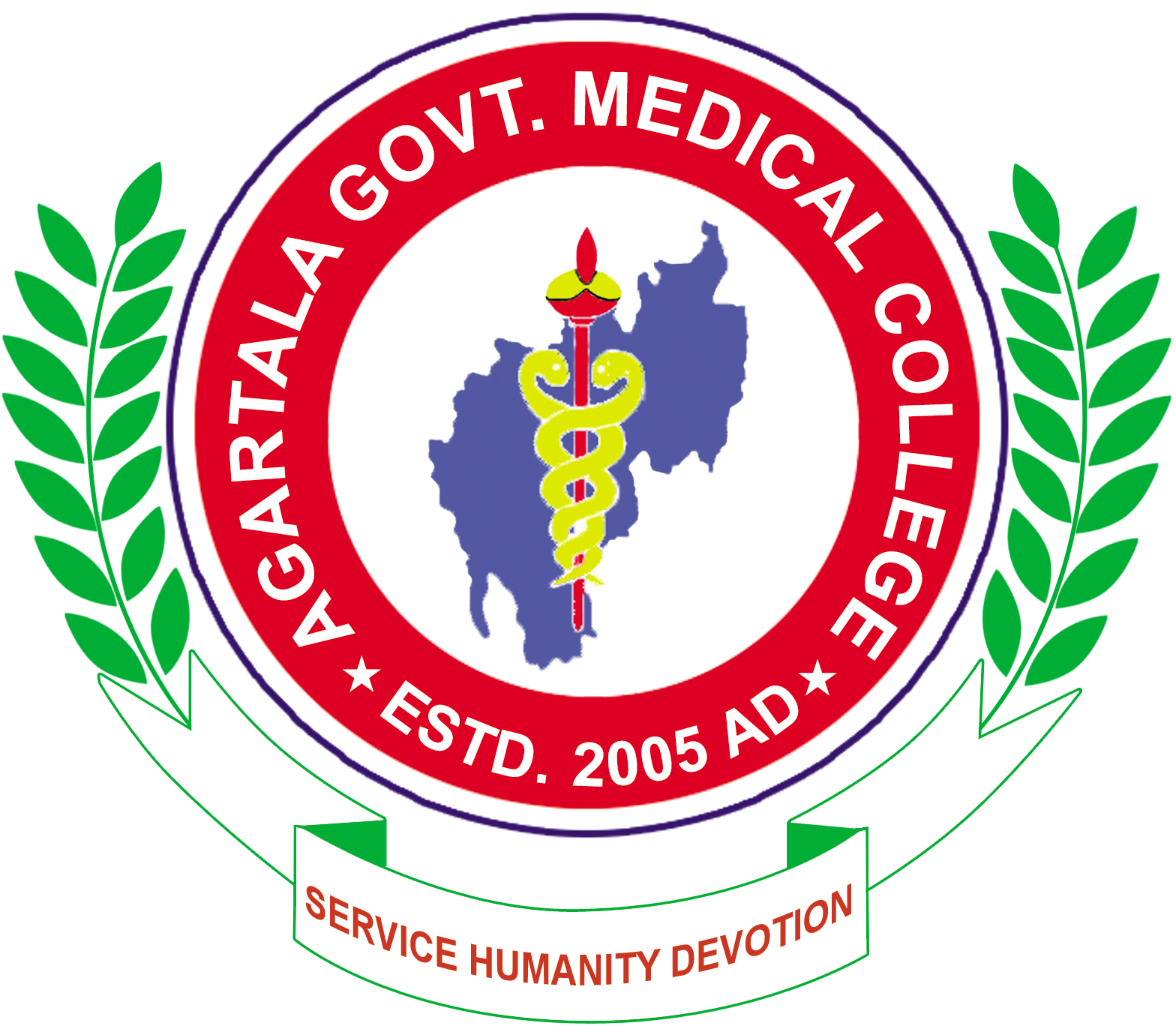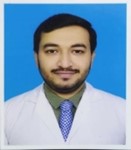Department of Surgery
The Department of Surgery at AGMC is dedicated to providing high-quality surgical care, advanced medical education, and pioneering research. The department offers a broad range of surgical services and training programs aimed at developing skilled surgeons and promoting patient safety.
1. Academic Curriculum
The department offers comprehensive training in surgery to both undergraduate (MBBS) and postgraduate (MS General Surgery) students. The academic structure includes:
- General Surgery: Basic and advanced surgical procedures, including appendectomy, cholecystectomy, hernia repair, and abdominal surgeries.
- Trauma and Emergency Surgery: Managing acute surgical emergencies such as trauma, road traffic accidents, and other critical surgical interventions.
- Laparoscopic Surgery: Minimally invasive surgical techniques for gallbladder, appendix, hernia, and other abdominal procedures.
- Oncological Surgery: Surgical management of cancers including breast, gastrointestinal, and thyroid malignancies.
- Vascular Surgery: Diagnosis and treatment of vascular diseases including varicose veins, arterial diseases, and diabetic foot care.
- Pediatric Surgery: Specialized surgical care for infants, children, and adolescents.
- Research and Evidence-Based Surgery: Integration of research in clinical practice to provide optimal surgical care and improve patient outcomes.
2. Clinical Services
The department provides a variety of surgical services, covering both routine and specialized procedures:
- Outpatient Department (OPD): Consultation and diagnosis of surgical conditions, preoperative and postoperative care, and follow-up services.
- Inpatient Services: Dedicated surgical wards equipped to handle a variety of conditions, from routine procedures to complex surgeries.
- Surgical Procedures:
- Elective Surgeries: Planned surgeries for non-emergency conditions like hernias, varicose veins, and benign tumors.
- Emergency Surgeries: Urgent surgical interventions for trauma, appendicitis, perforations, and obstructed hernias.
- Laparoscopic Surgeries: Minimally invasive techniques for gallbladder removal, appendectomy, and other abdominal surgeries.
- Cancer Surgeries: Breast cancer surgery, gastrointestinal cancer surgery, and thyroid surgeries.
- Reconstructive Surgeries: Post-trauma reconstructions, skin grafting, and other reconstructive procedures.
- Elective Surgeries: Planned surgeries for non-emergency conditions like hernias, varicose veins, and benign tumors.
3. Trauma Care and Emergency Surgery
The department plays a critical role in managing trauma and emergencies:
- 24/7 Trauma Care: Availability of trauma surgeons around the clock to handle accidents, injuries, and critical conditions.
- Emergency Operations: Immediate surgical response for conditions like appendicitis, ruptured ulcers, and intestinal obstruction.
- Critical Care Support: Collaboration with the intensive care unit (ICU) for managing critically ill surgical patients.
4. Faculty
The department is led by experienced surgeons specializing in various fields of surgery:
- Head of Department (HOD): Dr. [Name], MS (General Surgery), with expertise in trauma, laparoscopic, and oncological surgeries.
- Senior Faculty:
- Dr. ……………………. Specialist in Pediatric Surgery.
- Dr. …………………….., Consultant in Laparoscopic and Gastrointestinal Surgery.
- Dr. …………………….., Expert in Oncological Surgery.
- Dr. ……………………. Specialist in Pediatric Surgery.
Each faculty member is committed to providing high-quality education, mentoring students, and contributing to clinical research.
5. Workshops, Seminars, and Conferences
The department conducts regular educational and training activities to enhance knowledge and surgical skills:
- Surgical Skills Workshops: Hands-on training in basic and advanced surgical techniques, including suturing, laparoscopic procedures, and emergency surgeries.
- Seminars on Surgical Advances: Discussions on the latest surgical innovations, oncology treatments, and minimally invasive techniques.
- Conferences on Trauma and Emergency Surgery: Sessions on trauma management, critical care surgery, and improving outcomes in emergency procedures.
6. Facilities and Resources
- Operation Theatres: State-of-the-art operation theaters equipped with advanced surgical tools, laparoscopic instruments, and modern anesthesia facilities.
- Surgical ICU: A dedicated Intensive Care Unit (ICU) for postoperative care and critically ill surgical patients.
- Laparoscopic Surgery Unit: Facilities for performing keyhole surgeries, reducing recovery time and improving outcomes for patients.
- Skill Lab: Equipped for students and residents to practice surgical techniques and procedures in a controlled environment.
- Library and Learning Resources: Access to surgical textbooks, medical journals, and online databases for research and learning.
7. Research and Publications
The Department of Surgery is actively involved in clinical and academic research:
- Ongoing Research Projects: Research in areas such as trauma surgery, laparoscopic techniques, oncological surgery outcomes, and surgical site infections.
- Publications: Regular contributions to leading surgical journals, focusing on innovative surgical techniques, outcomes, and case studies.
- Collaborations: Partnerships with national and international medical institutions to promote collaborative research and exchange of knowledge.
8. Student Involvement
Students play an active role in the department’s activities through:
- Clinical Rotations: Practical exposure to surgical procedures, preoperative and postoperative patient management, and trauma care.
- Research Opportunities: Students are encouraged to participate in ongoing research projects and contribute to academic publications.
- Surgical Camps: Participation in outreach programs and surgical camps providing care to underserved communities.
9. Community Outreach Programs
The department participates in various community-based surgical services:
- Surgical Camps: Free or subsidized surgeries for patients in rural and underserved areas, focusing on conditions like hernias, cataracts, and other common ailments.
- Health Education: Promoting awareness about surgical conditions, preventive measures, and postoperative care through community programs.
- Screening Programs: Pre-surgical screening for cancers and other conditions, ensuring early detection and timely treatment.
10. Future Directions
The Department of Surgery at AGMC aims to:
- Expand Laparoscopic Surgery Services: Incorporating more advanced laparoscopic techniques for various conditions to reduce recovery times and improve patient outcomes.
- Strengthen Trauma and Critical Care: Enhance trauma care services and critical care management to provide timely, efficient emergency surgeries.
- Foster Research and Innovation: Continue research in trauma care, oncology, and minimally invasive surgery, aiming to contribute to global advancements in surgery.
- Develop Advanced Training Programs: Offer specialized fellowships and training in laparoscopic surgery, trauma surgery, and oncological surgery for postgraduate students.












